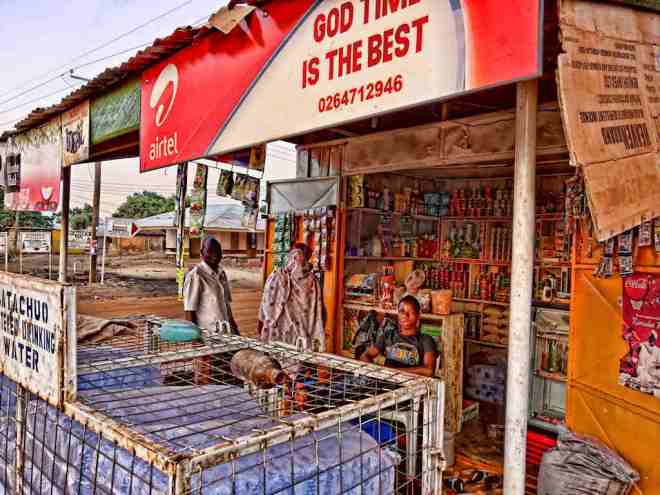In 1910, a major world missions conference was held in Edinburgh. Those present held hope for evangelism among the followers of eastern religions. The well-developed philosophical positions of those religions appealed to Europeans and American academics. Not a few Westerners romanticized Hinduism as a new world religion. We all know the attraction of eastern gurus in some segments of US society.
In contrast to the appeal of eastern religions, the missions conference came to the conclusion that the “primitive” religions of Africa would prove difficult ground for Christian faith. Many Western Christians find the masks, face paints, and rituals of African religion scary, barbaric and primitive – something so different from Christian faith that it could not possibly be fertile ground for evangelism – a religion that held no redeeming qualities such as eastern religions seemed to have.
Africa’s traditional religions are called “primal” religions by theologians, and anthropologists. Those at the conference saw Africa’s primal religions as rocky ground where the seed of the Gospel would struggle to survive, while the Eastern would produce a bountiful crop. It has not turned out that way; not at all.
 In 1910 when the missions conference was held, only 9% of Africans were Christian. Furthermore, almost all of those were in just four of the many countries in Africa: Ethiopia, South Africa, Egypt and Madagascar. Early missionary efforts had not borne fruit. But by 1970 almost 40% of Africans professed Christian faith. That number is for all kinds of “Christians”. What is more astounding is the growth of evangelical, Bible-believing faith in Africa, as you can see in the graph.
In 1910 when the missions conference was held, only 9% of Africans were Christian. Furthermore, almost all of those were in just four of the many countries in Africa: Ethiopia, South Africa, Egypt and Madagascar. Early missionary efforts had not borne fruit. But by 1970 almost 40% of Africans professed Christian faith. That number is for all kinds of “Christians”. What is more astounding is the growth of evangelical, Bible-believing faith in Africa, as you can see in the graph.
Meanwhile, evangelism among those following eastern religions has been very slow.
But this is not just an African phenomenon. In the last century Christianity has spread the fastest among peoples who follow what theologians and anthropologists call “primal” religions. This is true in Africa and around the world. It seems that people who follow the so-called “primal” religions are the best prepared by their traditional religion for Christian faith. In any case, the conclusions of that missions conference in 1910 were way off the mark.
God has a delicious way of turning the human wisdom into obvious folly. In this case, he has chosen those whose religious practices we considered primitive, vile, even barbaric, and poured out his Spirit on them. Paul wrote about things like this.
Instead, God chose things the world considers foolish in order to shame those who think they are wise. And he chose things that are powerless to shame those who are powerful. (I Cor 1:27)
Not only has Christianity flourished in Africa, churches in Africa are now sending out missionaries. Professor J. Kwabena Asamoah-Gyadu of Trinity Theological Seminary in Ghana has written:
“It is indeed a surprise that Africa, associated in Western minds with poverty, deprivation, squalor, political instability and barbarism, should emerge in God’s purposes as a leading player in Christian mission, including missions to the West.”
I believe that the confounding of the powerful and sophisticated is in full swing. But sometimes missionaries seem to miss it. I wonder if some mission activity in Africa goes on as though a major movement of God were not happening. The kind of growth in numbers, depth and capacity we see in the church in Africa must be matched by an equally significant shift in how we do translation here. Otherwise we effectively deny by our actions the marvelous thing God is doing. Let’s not make the blunder of painting our African brothers and sisters with the same mistaken brush used in 1910. Our methods and goals need to align with and celebrate the awe-inspiring movement of God’s Spirit among people who are coming out of primal religions.








































